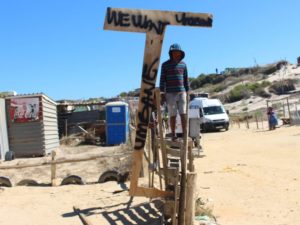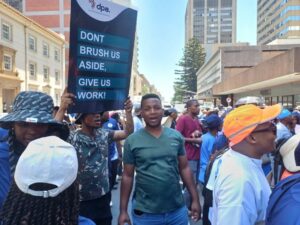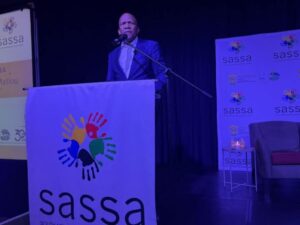After dissolving the board of the National Students Financial Aid Scheme (Nsfas) for poor management, Minister of Higher Education and Training, Blade Nzimande quickly appointed Sithembiso Freeman Nomvalo as the administrator of the embattled body. The minister described him as a seasoned administrator with extensive experience in public finance management who was until recently, the CEO of the South African Institute of Chartered Accountants (SAICA). “He has 20- 25 years work experience of which 17 were in senior positions in both the public and the private sector. We are very lucky to have him before anybody else could snatch him. The country needs him,” says Nzimande.
Presenting his reasons for the dissolution of the board at a media briefing in Pretoria on Sunday afternoon, Nzimande said this was a necessary intervention. He says he could no longer fold his hands when Nsfas no longer delivered on its mandate of ensuring the children of poor, working class homes realise their dreams.
The repeated inability of Nsfas to submit correct annual reports to parliament, its failure to respond to students queries on time, and to fully implement a Werksman report’s recommendations on irregular appointment of service providers, and its inability to address very serious and glaring deficiencies in the organisation including the call centre, are among some key reasons that led him to dissolve the board.
He says in view of this and in terms the section 1(a) and 1(b) of the Nsfas Act, he convened a meeting with the board on Thursday, 11 April and informed them of his decision to dissolve it and put Nsfas under administration. “It was very unfortunate. It is not nice to dissolve boards. I don’t enjoy it,” he says.
Although the scheme is currently facing serious operational challenges, the minister took the opportunity to reflect on its achievements. “As a minister, I have a deeper appreciation for the progressive and the transformative role Nsfas has played over the 33 years of its existence. It is the decisive instrument in the democratic government to fight intergenerational poverty. In its history, Nsfas has benefitted over 5-million beneficiaries who are now skilled professionals coming from the ranks of the working class and the poorest section of society. This is one of the most important achievements of this government. In fact there can be no better way to celebrate our 30 years of democracy without mentioning the success of Nsfas in its 33 years of existence,” the minister says.
The move by Nzimande to dissolve the board comes at a time when students on campuses have been organising protests against the late payments of funds by service providers. Speaking to the SABC, Asive Dlanjwa, the national spokesperson of the South African Union of Students (SAUS) said the actions of the minister came a little too late and the appointment of the administrator does not resolve the issue of late payment of funds.
The former general secretary of the South African Communist Party says the administrator has been appointed for an initial 12-month period which is subject to renewal for a further 12 months depending on the progress made. Outlining his mandate, he says Nomvalo will need to immediately take over the governance, management and administration of Nsfas, to ensure the finalisation of funding guidelines of the loan scheme for the missing middle, to resolve data integration challenges, to fast track the outstanding payments to student and ensure that online registration for loans and bursaries for the 2025 academic year is opened on time, and most importantly, to ensure speedy finalisation of all forensic investigations.
The minister says he plans to involve workers and trade union movements at Nsfas to ensure they redouble their efforts in helping students and that the work of Nsfas is not affected during this term of the administrator.
When asked about his appointment as administrator, Nomvalo says, “It’s humbling that the minister and the department think I’m the right person. I’m accepting this challenge because of the importance of Nsfas. I come from a rural background. My parents would not afford my education until my brother could step in and help. There are a lot of families who are not in that privileged position. So I think to add my skills in trying to resolve this issue, to help those families, is an important issue.”





